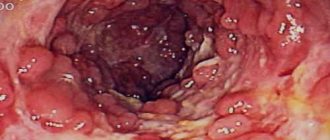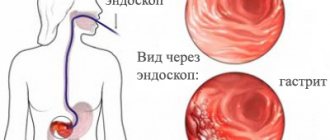What is glomerulonephritis
The content of the article
Glomerulonephritis (GN) is an inflammation of the kidneys that affects the glomeruli (glomeruli), tubules and interstitial (connective) tissue of the kidneys. This is an immune disease, so it is very difficult to treat.
Glomerulonephritis can be an independent disease or associated with systemic diseases - infective endocarditis, hemorrhagic vasculitis, lupus erythematosus, etc.
The disease remains asymptomatic for a long time. When the patient realizes that something is wrong with the kidneys and consults a doctor, it turns out that the affected organs cannot cope with their function. The situation leads to disability, condemning a person to lifelong attachment to an artificial kidney machine or to waiting for a donor for an organ transplant. This can be avoided if, after an infection, you visit a urologist, get tested and have an ultrasound of your kidneys.
Pathogenesis
It is also worth paying attention to the pathogenesis of RPGN due to antineutrophil-associated cytoplasmic antibody associated with crescentic glomerulonephritis. In the nephrotoxic nephritis model, T cells and dendritic cells are involved in the activation and proliferation of parietal epithelial cells, which contribute to sickle cell formation and glomerular damage. The role of lysosome-containing membrane protein and neutrophil extracellular traps has been well studied in studies of associated glomerulonephritis.
Risk group
Acute glomerulonephritis affects people of any age, but the disease is more common in young patients under 40 years of age. The disease ranks 2nd among complications of urinary tract infections in children.
According to statistics, glomerulonephritis is the most common cause of early disability due to the development of renal failure.
The disease is especially severe in pregnant women. Since during pregnancy the urinary system bears an increased load, women planning to have a child are recommended to undergo an ultrasound of the kidneys to exclude hidden nephritis.
Why is chronic inflammation dangerous?
Renal failure is a complication that occurs in all patients with chronic glomerular nephritis. Hypertensive and nephrotic forms of pathology are the most severe. Possible consequences of CGN include:
- hydrothorax;
- heart failure;
- abdominal dropsy;
- hypertension;
- cachexia (depletion of the body).
Violation of the nitrogen excretory function of the renal parenchyma leads to intoxication (uremia). It is accompanied by the accumulation of metabolic products in the blood, which is fraught with uremic coma.
Why does glomerulonephritis occur: there are many reasons
The cause of glomerulonephritis is acute or chronic streptococcal and other infections: ARVI, pneumonia, measles, tonsillitis, scarlet fever, tonsillitis, streptoderma (skin infection), chicken pox. If the primary infection is supplemented by hypothermia or exposure to a damp climate (trench nephritis), then the likelihood of a severe complication increases several times. This is due to a failure of immunological reactions, leading to impaired blood supply to the kidneys.
Urologists note a connection between glomerulonephritis and toxoplasmosis (Toxoplasma gondii), meningitis (Neisseria meningitidis), and staphylococcus (Staphylococcus aureus). After an outbreak of streptococcal infection, glomerulonephritis occurs within 1-3 weeks in 10-15% of patients. It is especially often caused by nephritogenic strains of b-hemolytic streptococcus A.
In response to the introduction of foreign microorganisms into the body, the body produces substances to destroy them. But sometimes, for unknown reasons, the immune system malfunctions, attacking kidney cells with foreign substances. An inflammatory process occurs, accompanied by tissue damage and impaired urine filtration. Microscopic blood clots form inside the renal vessels.
Blood appears in the urine (hematuria). Sometimes there is so much of it that the urine looks like meat slop. But more often, little blood is released, and it can only be detected using laboratory methods.
Prevention
Proper treatment of streptococcal diseases, compliance with the calendar of preventive vaccinations and sanitization of foci of infection in the body constitute the main preventive measures. Children who have suffered post-streptococcal glomerulonephritis should be under medical supervision for 5 years after treatment.
Preventive medical examinations and laboratory tests allow you to detect the disease early and avoid complications. Self-medication and neglect of general symptoms most often leads to severe forms of the disease.
Symptoms of glomerulonephritis
There are two forms of the disease: acute and chronic. Acute glomerulonephritis gives more vivid symptoms, while chronic glomerulonephritis is practically unnoticeable for a long time. Urologists note that the disease manifests itself more clearly in children than in adults.
Acute glomerulonephritis
The acute form gives at least three groups of symptoms:
- problems with urination (micro- or macrohematuria, oliguria);
- swelling;
- hypertensive signs.
Two variants of the course are possible: typical (cyclic) with vivid symptoms and latent (acyclic) glomerulonephritis is expressed by a gradual onset and erased symptoms. Acyclic is dangerous due to late diagnosis. It is this that often develops into chronic glomerulonephritis.
In the acute form of the disease, the patient's temperature rises, weakness, nausea and lower back pain appear. A characteristic symptom of the disease is swelling, especially in the face and neck. Swelling appears in the morning and gradually goes away during the day. The amount of urine produced decreases and becomes reddish in color.
But, more often than not, the symptoms of the disease remain vague. People attribute a slight increase in temperature and weakness to a recent illness. Swelling is also not always pronounced. An adult, especially one who is overweight, often does not notice an increase of 3-4 kg, and the faint reddish tint of urine also does not cause suspicion.
Jade does not cause intense pain, only a slight heaviness in the lower back. Therefore, people often do not consult a doctor, and the disease becomes chronic.
In 60% of patients, blood pressure begins to periodically increase, which is not reduced by conventional antihypotensive drugs. And 85% have problems with the functioning of the heart and blood vessels. Therefore, patients often come not to a urologist, but to a cardiologist or therapist. Nephritis is detected only after tests and ultrasound of the kidneys are prescribed.
Chronic glomerulonephritis
Chronic glomerulonephritis gives 2 groups of symptoms:
- nephrotic signs (urinary problems);
- hypertensive symptoms.
It is not uncommon to have a mixed type of syndrome—hypertensive plus nephrotic.
Also, as with the acute form, a latent course and hematuric type of the disease are possible, when the urine contains red blood cells, and other symptoms are practically invisible.
All forms of glomerulonephritis recur, especially often in the spring and autumn after a streptococcal infection.
Preventive actions
Preventing a disease is always easier than fighting it. It is enough to follow the useful recommendations given by experts. Treatment of a disease such as glomerulonephritis takes a long time. This is why doctors recommend taking prevention seriously.
Basic Rules
Patients with a chronic form of the disease should beware of exacerbation of the pathology. Visit a doctor in a timely manner and monitor the progression of the pathology.
For prevention, doctors recommend:
- maintain mental and physical peace, avoid overexertion;
- get vaccinated according to the established schedule after consultation with your doctor;
- periodically visit specialists, take tests, monitor kidney function;
- harden and increase immunity;
- Diabetics should monitor their blood sugar levels;
- treat allergies correctly, avoid contact with pathogens;
- Consult a doctor in a timely manner if your blood pressure increases, or if your face and limbs are swollen;
- give up the abuse of alcoholic beverages and tobacco products, the same goes for drugs.
Glomerulonephritis that develops due to an autoimmune disorder cannot be cured. Prevention will be an excellent protection for the kidneys from irritants and pathogenic microorganisms.
Patients are contraindicated to engage in heavy physical labor. It is enough to do gymnastics every day. You should gradually prepare for heavy loads.
It is important to avoid hypothermia and drafts, and dress appropriately for the weather. Working in a damp room is prohibited. In addition to an active lifestyle, doctors recommend eating right.
Healthy lifestyle
Simple advice from doctors will help prevent the development of pathological processes. It is important to promptly and correctly treat infectious diseases and strengthen the immune system.
People who are at risk are advised to stop abusing alcoholic beverages and tobacco products. If a person works at a chemical plant, safety rules must be followed. Protect your body so that heavy metals do not enter it.
Drinking regime
At the first stages of treatment or prevention, patients are advised to adhere to fasting days.
Drink as much fluid as is excreted from the body. The following will help support kidney function and prevent glomerulonephritis:
- Herbal decoction of lingonberry leaves, linden flowers, rose hips and black currants. Before use, consult a doctor.
- Pollen. Brew 0.5 tsp in a glass of hot water. and drink as a preventive measure for glomerulonephritis.
- Lingonberry-cranberry juice.
For preventive purposes, you can drink oatmeal broth to maintain the functioning of the urinary system.
Balanced diet
Food should not only be healthy, but also fortified and balanced. You should eat in small portions. Add more foods containing calcium, trace elements, and amino acids to your diet. Chemical food is prohibited.
It is important to limit your salt intake. Patients with glomerulonephritis are allowed 1 tsp. per day, no more.
Complications and prognosis for cure
In severe cases, nephritis progresses rapidly, causing kidney failure, accompanied by severe swelling. Impaired kidney function leads to poisoning of the body with unresolved toxins. Problems arise with the functioning of other organs - the heart, liver, brain.
Undiagnosed and untreated glomerulonephritis becomes chronic and leads to renal failure. The kidneys shrink, decrease in size, and cannot fully perform their function.
If the disease is not treated, you can get:
- acute renal failure (in 1% of cases);
- acute heart failure (2-3%);
- intracerebral hemorrhage and visual impairment;
- preeclampsia, eclampsia (acute renal encephalopathy);
- chronic glomerulonephritis.
With timely contact with an experienced urologist, the symptoms of acute glomerulonephritis - edema and arterial hypertension - disappear within 2-3 weeks. For a complete recovery, you will have to undergo treatment for at least 2 months.
Folk remedies
Here are some effective remedies that will help quickly restore kidney function:
- Take one tablespoon of dried black elderberry flowers, pour a glass of boiling water, leave until it cools completely. Take the medicine 1/3 cup three times a day before meals. The duration of taking elderflower infusion is 3-4 weeks, until complete cure.
- Healing collection for swelling. Mix flaxseed (4 parts) with dry birch leaves (3 parts) and field steel root (the same amount). Pour boiling water over it and leave to steep for a couple of hours. Then strain and consume a third of a glass three times a day. And so - for a week. After this time, you will forget what swelling is, get rid of pressure and heart pain.
- Mix 1 teaspoon of corn silk and the same amount of cherry tails, pour in 500 ml of boiling water and leave to steep until the medicine cools to room temperature. You need to take the infusion ¼ glass three times a day half an hour before meals. Treatment should be continued until the symptoms of glomerulonephritis disappear.
To boost immunity and help the body quickly cope with the pathological process, you need to take the following medicine every day, a teaspoon: a glass of honey, a tablespoon of walnuts, a tablespoon of hazelnuts, the peel of one lemon. Mix everything and store in a warm place.
How is glomerulonephritis diagnosed?
The diagnosis of “acute glomerulonephritis” is made based on several factors:
- History of infectious disease;
- Clinical manifestations - high blood pressure, swelling, urinary disorders;
- Laboratory data.
The urologist evaluates urinary, edematous and hypertensive syndromes.
Patients submit:
- Urine tests
(Zimnitsky and Reberg tests), which detect protein and traces of blood. The analysis reveals clotted cylinders consisting of coagulated protein and other components. These are a kind of “casts” of the kidney tubules, washed with urine. An important symptom is micro- or macrohematuria, when the urine changes color to almost black. At the first stage of the disease, fresh red blood cells are found in the urine, followed by leaching. The Zimnitsky test shows nocturia, decreased diuresis and high relative density of urine. - Blood from a finger
, in which an increase in the level of leukocytes and an acceleration of ESR are diagnosed. These changes indicate an inflammatory process. - Blood biochemistry
. With glomerulonephritis, a sharp increase in residual nitrogen is detected, indicating weak kidney function. An increase in the concentration of cholesterol, creatinine, ALT and AST is diagnosed.
The urologist prescribes an ultrasound of the kidneys and an ultrasound scan of the renal vessels. A kidney biopsy may be ordered to confirm the diagnosis.
What tests need to be taken
Diagnosis of chronic glomerulonephritis is carried out by a urologist. For symptoms of kidney dysfunction, the following are prescribed:
- Laboratory research methods. During immunological and biochemical analysis, a high concentration of IgG and IgM immunoglobulins, cholesterol, and protein in the blood is detected. A urine test reveals elevated levels of proteins and blood cells.
- Instrumental examination. With ultrasound, the echogenicity of the parenchyma increases. The size of the organs remains normal or decreases. To identify pathologies from other systems, an ECG, ultrasound of the pleural cavities, MRI of the pelvic organs, and pyelography are performed. Based on the results of biopsy and microscopic analysis, changes in tissue composition are revealed.
To determine the diagnosis, differential diagnosis of CGN with polycystic kidney disease, hypertension, nephrolithiasis, hydronephrosis and chronic pyelonephritis is performed.
What does a kidney ultrasound show for glomerulonephritis?
Ultrasound shows the beginning picture of renal sclerosis - the contours of the kidneys lose clarity, and their tissue becomes dense due to inflammation. The pyramids through which excreted urine enters the collecting system look too dark (hypoechoic).
As the disease progresses, the kidneys shrink. Normally their size is:
- length – 10.5-11 mm;
- width – 4.5-5 mm;
- the thickness of the parenchyma - the substance that makes up the organ - is 1.5-2.5 cm.
With degenerative changes that accompany glomerulonephritis, the kidney tissue shrinks. The kidney becomes uneven with areas of retraction. A layer of calcium salts is deposited around the pyramids that filter urine, which looks like a white rim on ultrasound.
The longer the disease lasts, the smaller the kidneys become. Their contours are completely “blurred” and the organs become difficult to recognize against the background of the surrounding tissue. The internal renal structures become completely indistinguishable.
The blood supply to the organ is also disrupted, visible on ultrasound and Doppler, as a depletion of the vascular pattern and a general decrease in blood flow.
Role of the immune system
In this case, it is necessary to pay attention primarily to the immune system in order to strengthen the defenses. The body must be able to cope with viral infections and other pathologies. To do this you need:
- treat infectious diseases in a timely manner and complete the course of therapy, otherwise the pathologies will affect the functioning of the kidneys;
- follow the doctor’s recommendations when taking medications that were prescribed in connection with any disease;
- donate urine and blood for examination several times a year;
- pay attention to a proper diet, excluding fried, smoked and too salty foods from the regular menu, but eat more fruits and vegetables;
- take walks every day and do physical exercise;
- do hardening.
The patient also has the right to have special working conditions without night shifts and hypothermia.
Treatment of glomerulonephritis
The disease, especially when diagnosed late, takes a long time and is difficult to treat. The patient is prescribed anti-inflammatory drugs, antibiotics, and hormones. During treatment, it is important to follow a strict salt-free diet. An indicator of the success of treatment is an improvement in general condition, normalization of laboratory parameters and the disappearance of signs of acute inflammation on ultrasound.
Unfortunately, glomerulonephritis, especially chronic, often recurs after another cold or simply in the off-season. Therefore, people suffering from it need to periodically undergo tests and undergo ultrasound examinations of the kidneys and adrenal glands.
If an ultrasound shows that degenerative changes in the kidneys have stopped, we can assume that the person has overcome an unpleasant disease.










